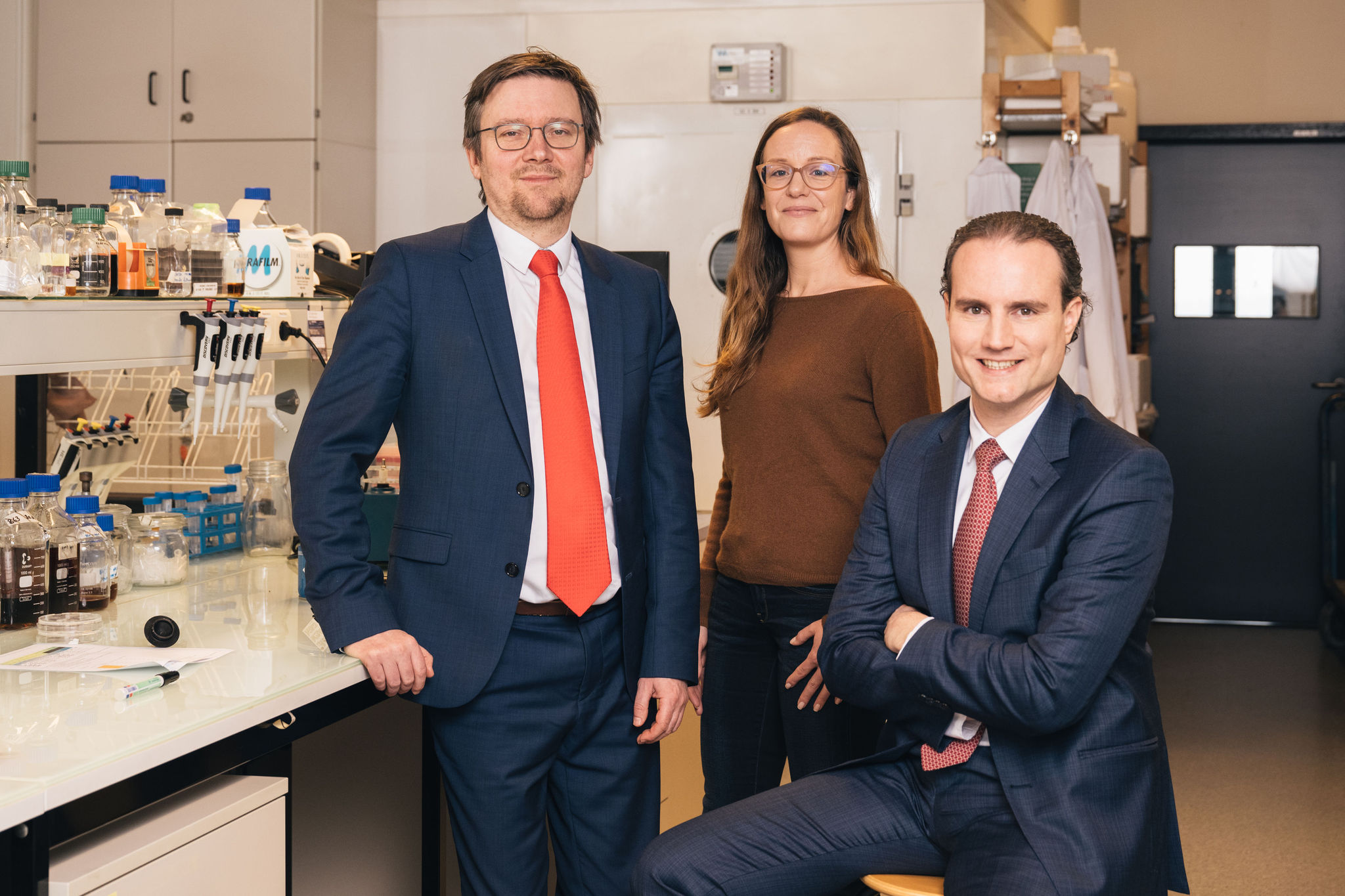25 feb Paleo introduces GMO-free animal myoglobins through precision-fermentation
- In a world first, Paleo uses precision fermentation to produce GMO-free heme proteins that are bio-identical to 6 animal proteins (chicken, beef, pork, lamb, tuna and mammoth).
- Paleo’s functional ingredients offer manufacturers of plant-based foods a distinct and versatile portfolio.
- Food technology company Paleo today announces its groundbreaking technology to bring the true taste and aroma of meat and fish to plant-based meat and fish alternatives.
On June 30, 2022, the World International Property Organization published Paleo’s patent application PCT/EP2021/087884, finally allowing Paleo to share details of its precision fermentation technology.
Paleo’s animal-free heme platform is the most advanced on the market today and will be available for manufacturers shortly.
Bio-identical, animal-free and GMO-free
Plant-based meat alternatives today are stuck in an “uncanny valley” of tasting almost like meat but not quite. Consumers are interested in trying meat and fish alternatives but are not convinced by the taste.
Paleo offers a compelling answer to this challenge, with its portfolio of animal-free heme proteins that are bio-identical to beef, chicken, pork, lamb, tuna (and even mammoth).
Heme is important when it comes to resembling conventional meat products. Heme is responsible for the taste and colour of meat. Before cooking, heme will give meat alternatives a red colour that turns to brown during cooking. Heme also offers superior nutritional value. The iron in heme is easier for the human body to absorb than iron in vegetables.
Hermes Sanctorum, CEO: “When we set out to create the ultimate animal-free meat or fish experience, we quickly zeroed in on heme. Without exaggeration, we can say that we cracked the code of heme, allowing us to produce GMO-free heme that’s bio-identical to the most popular meats and tuna – as well as mammoth.”
In side-by-side tests, the difference between a plant-based burger using Paleo heme and a conventional plant-based burger is immediately clear. The burger with bio-identical beef heme smells like a burger, changes colour when cooked like a burger and tastes like a beef burger – the other one just doesn’t.
Paleo improves on current heme technology in important ways:
- A choice of 6 different proteins. Paleo is the first to offer a choice of 6 hemes for some of the most popular meats worldwide: chicken, pork, beef, lamb, tuna (and mammoth).
- Animal-free but bio-identical to animal protein. Paleo heme is animal-free but 100% identical to animal protein (“bio-identical”).
- GMO-free. Paleo is the first to develop a heme fermentation process where the yeast cells release the heme into the environment. The resulting heme is a highly pure product that is GMO-free.
Superior taste and nutritional value
Early reactions from the market show the huge commercial appeal of Paleo’s ingredients. Paleo offers food manufacturers important competitive advantages.
Consumers will appreciate the superior taste, aroma and nutritional value of meat and fish alternatives with Paleo heme, as well as the range of choices that the ingredients offer.
Choice is lacking in today’s plant-based meat alternatives. With Paleo, consumers will be able to experience the difference between chicken nuggets and tuna sashimi.
Labelling is another advantage. Paleo’s process allows food manufacturers to comply with GMO-free labelling in most markets. Paleo ingredients will live up to the standards of the most strictly regulated food markets in the world.
Future market introduction
Paleo will market their heme as a food ingredient to be used in plant-based meat and fish alternatives. The company is preparing market entry in the US, Canada, Europe, Latin America and Asia. Strategic partnerships with Contract Manufacturers are in place to ramp up production.
The technology of fermentation has been well known for centuries and is similar to beer brewing, which makes production highly scalable. The fact that Paleo heme is cleanly separated from the yeast cells makes the production process faster and also more sustainable.
Hermes Sanctorum: “If we want to meet the 2025 and 2030 forecasts for meat and fish substitutes, we need game-changing technology like Paleo’s. Current technologies just can’t deliver on the projections of the market for 2030 or even 2050. With Paleo, a true flexitarian lifestyle does become possible.”
Andy de Jong: “Paleo heme production is only the beginning. Using our technology, we can also create other ingredients that are essential to the meat or fish experience and mouth feel, like fats. We’re very excited about the possibilities that our technology offers.”
Paleo has raised 2.5M in seed funding to date and is now working with financial and strategic investors on a Series A round to bring its products to the market and to broaden its portfolio of products.

Sorry, the comment form is closed at this time.